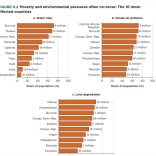Mozambique: INGD inaugurates weather warning system
Environmentalists warn of land grab and environmental risk of factory in Mozambique

Environmental Paper Network
An international environmental network has warned that the construction of a new pulp mill by Portuguese group Navigator in Mozambique will affect the environment and agriculture and impoverish populations whose land has been usurped by the industry.
A statement released in Lisbon by Quercus, which is a member of the Environmental Paper Network, states that the construction of the factory, which can produce 1.5 million tons of pulp annually and has its own biomass-fired power plant, is planned for the Mozambican province of Zambezia, to be located by the shore reads the statement.
To facilitate the project, it has bought 300,000 hectares of land to plant eucalyptus, “obtained by promising temporary jobs or making small payments”, but “without clearly communicating the impacts and consequences of plantation development” it would have on the environment and local communities.
“Many people have been displaced to remote locations, or forced to rent land.” and “ some complaints presented to the authorities have not been addressed,” they say.
Production from the Portucel Moçambique plant, a Mozambican company controlled by Navigator Company of Portugal, “will mostly provide pulp to the Asian paper industry.”
Among the measures to mitigate the effects of the construction of the unit, the Network recommends that banks and financiers do nothing without the “free and informed consent” of the people affected, complaints being taken into account and human rights respected.
As for the forest exploitation, they demand that eucalyptus be planted only where there is no existing forest and with concrete plans to reduce pollution, while respecting people’s existing land-use patterns.
Portucel Mozambique’s land in Zambézia province has already put 114,000 hectares of miombo forest under pressure from eucalyptus, which absorbs large amounts of water to grow.
The impact of the eucalyptus thirst will also be felt in agriculture, the Network stresses, and “could cause a severe decline in local agriculture, threatening food security”.
Network coordinator Mandy Haggith warned funders, which include a World Bank group body, that this project “is a brutal land grab that will impoverish already vulnerable communities and harm the miombo forest”.
“They must ask themselves how this project can be consistent with their policies,” she said.
Read the full document here












Leave a Reply
Be the First to Comment!
You must be logged in to post a comment.
You must be logged in to post a comment.